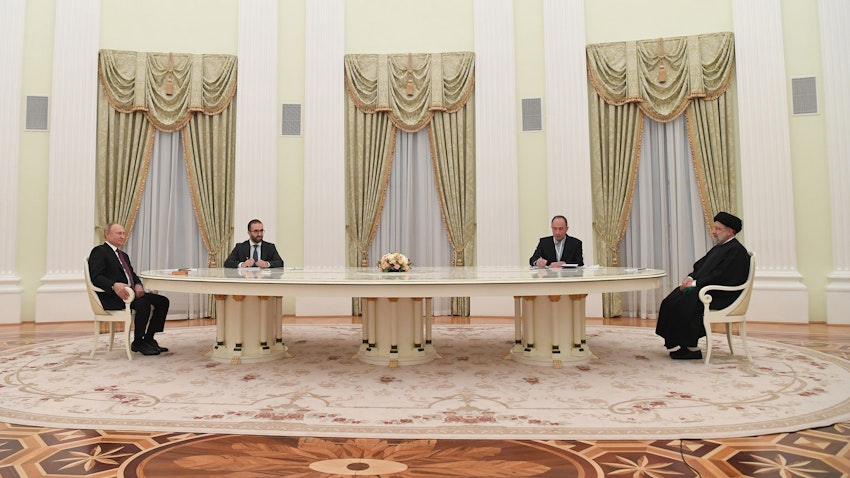Russia and Iran Forge Alliance Ahead of Trump Inauguration
In a significant geopolitical move, Russia and Iran have signed a comprehensive cooperation treaty just days before the inauguration of Donald Trump. This agreement is poised to reshape the dynamics of power in the Middle East and beyond, as both nations seek to strengthen their ties amidst rising tensions with Western nations.
Significance of the Treaty
The treaty, signed on January 17, 2025, outlines extensive collaboration in military, economic, and technological sectors. Analysts suggest that this partnership could provide Iran with critical support as it faces renewed sanctions from the United States. For Russia, this alliance offers an opportunity to expand its influence in a region historically dominated by Western powers.
Military Cooperation at the Forefront
A key aspect of the treaty is the commitment to enhance military cooperation. Both nations have agreed to conduct joint military exercises and share intelligence on regional threats. This collaboration is particularly relevant given the ongoing conflicts in Syria and Iraq, where both countries have vested interests.
“This treaty is a clear message to the West that Russia and Iran are united against external pressures,” said Dr. Elena Petrov, a political analyst at the Moscow Institute of International Relations. “It signifies a shift towards more aggressive posturing in the region.”
Economic Implications
Economically, the treaty aims to boost trade between Russia and Iran. The two countries plan to increase bilateral trade from $2 billion to $10 billion over the next five years. This includes agreements on energy cooperation, particularly in oil and gas sectors where both nations are major players.
“By working together, Russia and Iran can circumvent sanctions and bolster their economies,” noted Ahmad Raza, an economist based in Tehran. “This partnership could also lead to new energy projects that benefit both countries.”
Technological Advancements
The technological component of the treaty focuses on sharing advancements in defense technology and cybersecurity. As both nations face increasing cyber threats from Western nations, this collaboration could enhance their capabilities in protecting critical infrastructure.
“The exchange of technology is crucial for both countries,” explained Dmitry Ivanov, a cybersecurity expert. “It allows them to fortify their defenses while also developing indigenous technologies.”
Reactions from Global Powers
The signing of this treaty has drawn mixed reactions from global powers. The United States has condemned the alliance, viewing it as a direct challenge to its influence in the region. Secretary of State Antony Blinken stated that the U.S. will continue to impose sanctions on Iran and monitor Russia’s activities closely.
In contrast, China has welcomed the treaty as a step towards greater multipolarity in international relations. Chinese Foreign Ministry spokesperson Wang Wenbin remarked, “We support any efforts that promote stability and development in the region.”
The Road Ahead
As Donald Trump prepares for his inauguration on January 20, this new alliance between Russia and Iran presents a complex challenge for his administration. Trump has previously expressed skepticism towards both nations but will now have to navigate this strengthened partnership.
The implications of this treaty could reverberate throughout international politics for years to come. Experts warn that increased cooperation between these two nations might lead to heightened tensions with Western allies.
The cooperation treaty between Russia and Iran marks a pivotal moment in global politics as both countries seek to bolster their positions against perceived threats from Western powers. With military, economic, and technological collaborations on the horizon, this alliance may redefine power dynamics in the Middle East and beyond.


